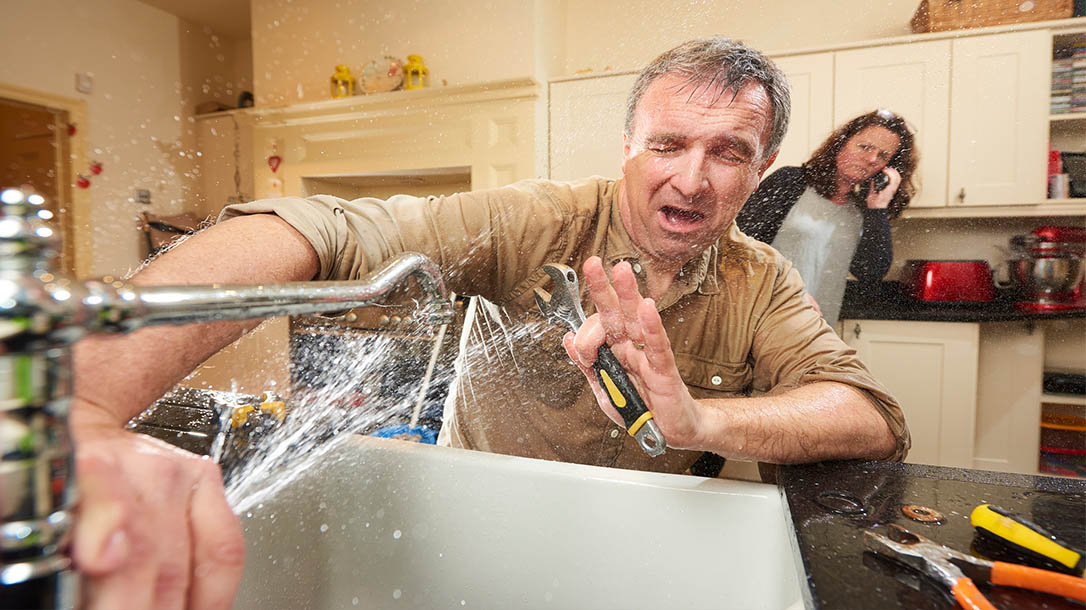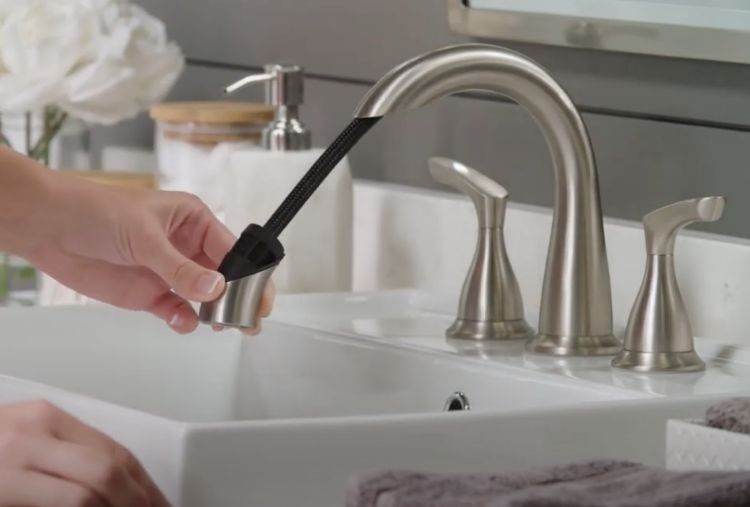Our Benefits of Fixing a Dripping Faucet
Our Benefits of Fixing a Dripping Faucet
Blog Article
The writer is making a number of great pointers on Why Is It Important To Fix Your Leaking Tap/Faucet? as a whole in the article on the next paragraphs.

Leaking faucets may look like a small hassle, however their impact surpasses simply the aggravation of the noise. From drainage to sustaining unneeded economic expenses and wellness dangers, disregarding a trickling faucet can lead to different consequences. In this post, we'll look into why it's crucial to resolve this common home concern promptly and properly.
Wastage of Water
Environmental Effect
Leaking faucets add dramatically to water wastefulness. According to the Epa (EPA), a solitary tap leaking at one drip per secondly can throw away more than 3,000 gallons of water annually. This not only stress water resources but also affects communities and wild animals depending on them.
Step-by-Step Overview to Taking Care Of a Dripping Tap
Tools Required
Prior to trying to deal with a dripping tap, collect the needed tools, including an adjustable wrench, screwdrivers, replacement components (such as washers or cartridges), and plumber's tape.
Common Faucet Issues and Their Solutions
Recognize the sort of tap and the particular problem triggering the drip. Usual issues consist of damaged washing machines, corroded valve seats, or defective O-rings. Refer to manufacturer directions or online tutorials for detailed support on repairs.
Financial Expenses
Enhanced Water Expenses
Past the environmental effect, trickling taps can blow up water expenses considerably. The gathered wastage gradually translates right into higher energy expenditures, which might have been avoided with timely repair services.
Possible Property Damage
Furthermore, long term trickling can cause damage to fixtures and surfaces surrounding the tap. Water build-up can cause discoloration, corrosion, and also architectural problems if left neglected, resulting in additional fixing prices.
Health Worries
Mold and Mold Development
The consistent existence of moisture from a leaking faucet produces an excellent atmosphere for mold and mildew and mildew growth. These fungi not only jeopardize interior air quality yet also posture wellness dangers, specifically for people with breathing problems or allergic reactions.
Waterborne Illness
Stationary water in trickling faucets can become a breeding ground for bacteria and other virus, enhancing the threat of waterborne illness. Pollutants such as Legionella microorganisms grow in stationary water, potentially resulting in severe ailments when ingested or breathed in.
DIY vs. Specialist Repair work
Pros and Cons of DIY Repair Work
While some may attempt to repair a trickling faucet themselves, do it yourself repairs feature their own collection of challenges. Without correct knowledge and tools, DIY attempts can intensify the problem or bring about insufficient repair services, prolonging the trouble.
Benefits of Hiring a Professional Plumber
Working with a professional plumber makes certain that the underlying source of the leaking faucet is dealt with effectively. Plumbing technicians possess the competence and devices to identify and repair tap issues successfully, saving time and reducing the risk of more damage.
Environmental Responsibility
Private Payment to Conservation
Taking responsibility for repairing trickling faucets aligns with more comprehensive initiatives towards water conservation and ecological sustainability. Every individual's actions jointly make a considerable impact on preserving valuable resources.
Lasting Living Practices
By prioritizing timely fixings and embracing water-saving habits, individuals contribute to sustainable living methods that benefit both existing and future generations.
Preventive Measures
Routine Upkeep Tips
To avoid leaking faucets, perform regular upkeep such as cleaning up aerators, checking for leakages, and changing worn-out parts immediately. Additionally, take into consideration installing water-saving tools or upgrading to more reliable components.
Value of Prompt Services
Resolving trickling faucets as quickly as they're observed stops further water wastefulness and potential damage, ultimately conserving both water and money over time.
Effect On Home Worth
Understanding of Well-Maintained Building
Maintaining a home in good condition, consisting of addressing maintenance problems like dripping taps, enhances its regarded worth and desirability among potential buyers or lessees.
Influence on Resale Worth
Properties with well-kept plumbing components, consisting of taps, command higher resale values in the property market. Addressing trickling faucets can contribute to a positive impression during home assessments and arrangements.
Verdict
Dealing with a dripping faucet exceeds mere convenience; it's a vital step towards preserving water, minimizing financial prices, and guarding health and building. Whether with DIY repair services or expert help, taking action to repair dripping faucets is a little yet impactful means to promote accountable stewardship of sources and add to a much healthier, more lasting future.
How to Fix a Leaky Faucet: Step-by-Step Repair Guide
A leaky faucet may seem like a simple annoyance, but if it's not fixed promptly, that leak could cost hundreds to potentially thousands. From water damage to mold, mildew, and high water bills, even a tiny leak can be catastrophic if left unattended. Damage like this can even affect the overall value of your home, so it's important to take the right approach for leaky faucet repair. You may need the help of a plumber in some cases, but we've got a few tips you can try on how to fix a leaky faucet before calling the pros.
Four Faucet Types
When you're learning how to fix a leaky faucet, the first step is knowing what kind of faucet you're working with! There are four common types.
Cartridge Faucets
Cartridge faucets come in one- or two-handled varieties. In one-handled cartridge faucets, hot and cold water combines in a single cartridge. In the two-handled versions, hot and cold water are controlled separately and mixed in the faucet.
Ball Faucets
Ball faucets have a single lever you push up and down to adjust the pressure and rotate to change the temperature. A slotted metal ball controls the amount of water allowed into the spout.
Compression Washer Faucets
They're the oldest type of faucet, but they're still used in many homes — especially older ones. Compression faucets have two separate handles that, when turned, raise or lower the washer that seals a water valve. This valve stops water from flowing through the faucet when it is turned off.
Disc Faucets
Disc faucets rarely need to be repaired due to their maintenance-free design. The water flow is controlled by two discs — the upper one raises and lowers against a fixed lower disc, creating a watertight seal. If your disc faucet starts leaking, you may need to replace the seals or clean residue buildup from the inlets.
Fixing a Leaky Faucet
Step 1: Turn Off the Water
Whether you're learning how to fix a leaky bathtub faucet or how to fix a leaky kitchen faucet, always turn off the water supply to your working area when you're fixing a leak. The last thing you want is a flood added to your list of things to fix.
Look for the shutoff valves below your sink or around the tub and turn them clockwise to stop the water flow. If your faucet doesn't have shutoff valves, you may need to turn off the water for the whole house. Check to make sure it's off by turning the faucet on. If nothing comes out, you're ready to start the repair.
Step 2: Take Apart the Faucet
How you disassemble your faucet depends on the type of fixture you have. You can use a flathead screwdriver to remove the caps on top of the handle or handles for cartridge and compression faucets. Inside, you should see handle screws. Unscrew these with a screwdriver to remove the handle.
Disc- and ball-style faucets will typically have an inlet screw near the handle, and removing that will reveal the interior of the faucet.
Detach the Valve Stem
For cartridge- and compression-style faucets, you'll see the inner valve stem or cartridge once you remove the faucet handles. If you have a compression faucet, unscrew the brass valve stem. If you have a cartridge faucet, pull out the cartridge. If your cartridge has been in place for a while, it may require some tools or extra force to remove it due to mineral deposits.
Examine and Replace Parts
Once you've removed the parts, check them out to confirm what needs to be replaced. You may see corroded rubber washers, O-rings, stems, or cartridges. On a ball-style faucet, check the seats and springs for damage.
If you need to repair a leaky disc faucet, check the inlet and seals on the lower disc.
Once you determine what parts must be replaced, visit your local hardware store. Bring the damaged parts with you to ensure you can purchase the correct components to replace them.
Clean Valves and Faucet Cavity
If you've removed a stem or cartridge, you may notice mineral buildup in the faucet's threads. Use white vinegar to clean the valve seat by soaking it for a few minutes, then scrub it away with a soft toothbrush and rinse with warm water. You can also clean the interior of the faucet in the same way.
Reassemble the Faucet
Once your faucet is cleaned and the required parts have been replaced, it's time to reassemble it. Put the pieces back together and slowly turn the water supply back on. Doing this slowly is crucial because too much initial water pressure can damage the new hardware you've just installed.
https://homewarranty.firstam.com/blog/how-to-fix-leaky-faucet

I'm certainly very interested by Why Is It Important To Fix Your Leaking Tap/Faucet? and I'm hoping you enjoyed reading the new piece. Enjoyed our blog? Please share it. Let somebody else find it. I thank you for reading our article about Water Dripping from Faucet: Why and How to Fix.
Report this page